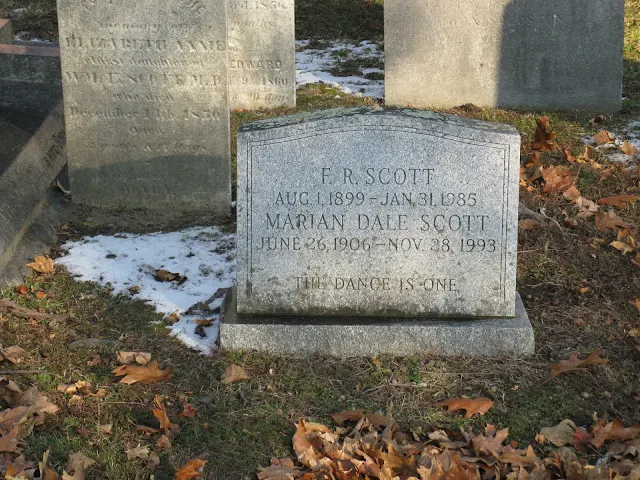Eleven years ago I heard of the passing of Keitha K. MacIntosh; she was a poet, author of short stories, a publisher, a professor of English at Vanier College, and someone who encouraged Montreal writers, including myself. She was also a good friend; we first met at Sir George Williams University around 1972 when we were enrolled in Richard Sommer's creative writing class; later, I did poetry readings for her class at Vanier College and visited her when she lived in a trailer adjacent to her future home in a 200 year old log cabin. We corresponded for years, and in 1979 I bought property near Trout River not far from Keitha's home in Dewettville. Here (below) is a photograph of her headstone in the Ormstown cemetery, courtesy of the "find a grave" website.
Last night, watching the Antique Roadshow on PBS, I was reminded of Keitha who was an avid collector of antiques, mainly antique bottles. She told me that she used to find these bottles in the ruins of houses and other buildings that had been abandoned. She and her family and friends explored many of these homesteads in South Western Quebec until the supply of bottles ran out. This reminds me that Artie Gold also collected antique bottles, some of which I inherited after Artie died in 2007; Keitha also published, in her poetry magazine Montreal Poems, some of Artie's early poems. And then I thought of the weeks preceding hearing the news of Keitha's death; I hadn't thought of Keitha for years but I had a curious experience, just before I heard of her death I was filled with memories of Keitha, not just one or two memories but a flood of memories, mostly of things she said about her mother and father, and her husband Archie. Even I was surprised by how much I remembered!
It was at this time, in 2012, when I was "rampant with memory" about Keitha, a phrase Margaret Laurence uses in one of her books, that I received news of her passing. I have always remembered the past, perhaps more than most people, and, of course, I have written about it, the early death of a parent does that to a person, grief does that, every memory is precious because it is all that we have left of the person, so close to us, that died. Memory is a part of our DNA, years ago I read Henry Miller's Remember to Remember, C.G. Jung's Memories, Dreams, Reflections, and Jack Kerouac's novels and poetry, "Memory Babe" said Jack Kerouac.
Before hearing of Keitha's passing, I must have spent ten years trying to write "A Poet's Journey", an essay based on remembering the past and on becoming a poet; and it was Keitha who I was thinking of when I began that essay but it developed into a life of its own and became a personal memoir; writing, editing, remembering, and then it's ten years later but the essay has found its own voice and content.
Keitha had a Celtic background as I do, and for the Celts memory, the ancestors, family history, and spirit are all important. You might not set out to record the lives of your ancestors, you just do it, as you breathe or have lunch or sleep. It's what we do, it's a natural thing to do, one foot is always in the past and the ancestors are never far from thought. It was a natural event to remember Keitha in the time preceding her death; it was as though she was paying me a last visit before moving to the great unknown.
Memory is like a dream or a poem, what you remember is subjective and may say more about you than you realize. Two people have the same experience and remember it in different ways, one positive, one negative. Sometimes the memories of siblings conflict, and at those times siblings seem to come from different families. And then, after remembering Keitha in 2012, I thought of Louis Dudek and, again, long forgotten memories returned to me, riding a city bus with him, sitting with him in his office, that particular memory changed my life and I have written about it elsewhere; and I thought of another old friend, George Johnston, what a kind and generous person he was.
But how much can memory be trusted? I stand behind the veracity of all of my memories but when other people who shared experiences with me give their version of certain events, sometimes they contradict what I remember, sometimes I don't recognize anything they remember, sometimes they add to and enlarge my memories, sometimes we have false memories. But even a false memory has some truth about it, just don't base your life on a false memory; sometimes memories are like poems or dreams. Without memory everyone would be immediately forgotten after they die, as though they never existed, this is something all poets know and our books and poems are a pause in the inevitable act of forgetting.

